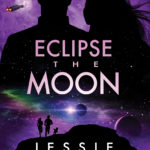I had the privilege recently to read the Sharing Knife series by Lois McMaster Bujold, courtesy of Eos. This four volume series tells the story of the young farmgirl Fawn and her relationship with the middle-aged Dag. As a patroller, Dag is responsible for walking the land looking for the life-sucking demons known as blight boggles or malices. As a widower, he’s also walking the land looking for death.
Then he rescues the helpless, pregnant Fawn from the slimy grasp of a moderately powerful malice; but not before the creature manages to literally rip the life from her three month old fetus. Dag nurses Fawn back to health, and in the course of doing so falls once again into love. Their love is, of course, forbidden by both their peoples but neither cares.
You see, in their world, there are patrollers and there are farmers. The latter group basically encompasses all the not-patrollers: farmers, merchants, soldiers, and regular people who don’t have the extrasensory powers of the patrollers. It’s a classic case of love bridging the division of right-side/wrong-side of the tracks. There is prejudice and mistrust on both sides and neither group feels very comfortable with the other.
As one-half of a multi-racial marriage, this particular theme struck a chord with me. When Dag and Fawn marry and neither group is really willing to accept them, where will they live? Will their respective families allow them to remain together or try to force them asunder? Where does a young couple make their home when their roots are at odds? Is their relationship strong enough to face the inevitable prejudice and doubt of their friends and family?
Then throw in the fact that these demon-like malices are emerging more and more frequently to face a dwindling supply of kamikazi patrollers willing to donate their heart’s deaths to their destruction. The big question then is – Can Dag stay married to and protect Fawn without walking away from the responsibilities that he’s shouldered for his entire life? Can he convince both sides that they need each other in the fight for their very existence?
One of the central themes throughout the seres is whether one open-minded couple can change the very structure of their world. Horizon doesn’t necessarily come right out and answer that question. By the last paragraph, Dag and Fawn have made a very good start. Some very small social changes, combined with a very dramatically portrayed final battle with an extremely strong and destructive malice, are an excellent start. But Bujold doesn’t give us the answer to that question. She leaves us with the same things we have in this world: A good idea, a head start, and a whole lot of hope.
I enjoyed this series very much. It was a deep, well-woven tapestry with some of the best world-building I’ve ever seen. Stories are like relationships. Some of them reach out, grab you by the heart and leave you breathless, wanting more. The Sharing Knife is more like that solid, dependable guy you once dated. Remember? He’s the one who always opened doors and remembered your birthday, giving you the same flowers every year. You smile to think about him; you enjoyed his company. But you broke up with him a year ago because that “spark” just wasn’t there. I didn’t fall in love with the world, but it was a very pleasant distraction to retreat into for a time.
The age difference between Fawn and Dag creeped me out a little. I understand that Fawn’s youthful eighteen-year-old exuberance is meant to give the fifty-five-year-old Dag something new to live for. I just have to admit that my skin crawled just a little bit every time I thought of it.
I was impressed by the way Bujold managed to portray a one-handed hero without ever making it seem like he was handicapped. Dag’s maiming fit into the story without it being something he needed to “over come” in order to live normally. It simply was an aspect of him, like having dark hair or being tall. Having only one hand wasn’t any more a detriment to Dag than having brown eyes is to me.
Overall, I think this series sits at a very solid B. It’s not something I’ll race to re-read but it’s nice to know it’s there in case I’d like to revisit it.
[xrr rating=3.25/5]




